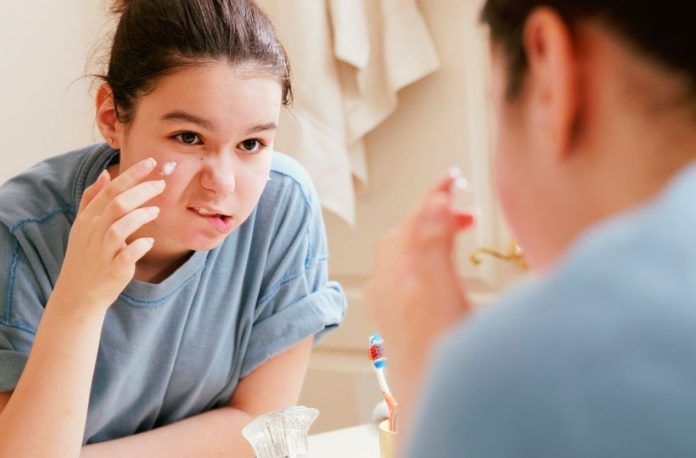Acne is a very prevalent skin problem. According to estimates, 80 percent of teenagers are affected. Spots and cysts, as well as pigment changes and scarring, are all common symptoms.
The face is the most frequently affected area, but the chest and back are also regularly affected. Acne has significant psychological repercussions for people of all ages, but teenagers may be more vulnerable.
The study, which was published in Nature Communications, looked at nine genome wide association study datasets from people all across the world.
These investigations involved sequencing the whole genomes of 20,165 acne sufferers and 595,231 acne-free people.
The research discovered 29 novel genetic variants that are more common among acne sufferers. It also confirmed 14 of the 17 genetic changes previously linked to the disease. The total number of recognized variants today stands at 46.
“Despite major treatment advances in other skin conditions, progress in acne has been limited,” according to Professor Catherine Smith is a Professor of Dermatology and Therapeutics at Guy’s and St Thomas’ St John’s Institute of Dermatology.
“As well as suffering from the symptoms of acne, individuals describe consequent profound, negative impacts on their psychological and social wellbeing. It’s exciting that this work opens up potential avenues to find treatments for them.”
The researchers discovered a number of genes that are common in persons who have acne and that are also associated with other skin and hair disorders. The researchers hope that this will aid in their understanding of the causes of acne, which could be a combination of variables.
“We know that the causes of acne are complicated, with a mix of biological factors such as genetics and hormones, and environmental factors,” says Professor Michael Simpson is Head of the Genomic Medicine Group at King’s College London. “Understanding the genetics of the condition will help us to disentangle some of these causes, and find the best way to treat the condition.”
Acne: Who develops severe condition
The study also discovered a correlation between acne genetic risk and disease severity. Disease severity is greater in those with the highest hereditary risk.
While more research is needed, this discovery presents the possibility of identifying individuals who are at risk of developing a serious condition and intervening at an early stage.
How can you prevent acne?
Although you can’t change your genes, you can influence several lifestyle variables that lead to acne breakouts. These are some of them:
Breakouts can be reduced by washing your face at least twice a day and keeping your hands away from your face.
Acne-prone areas can benefit from using oil-free or noncomedogenic products rather than those that clog pores.
Acne can be exacerbated by greasy foods, fast food, and items that trigger insulin surges, such as refined sugar or carbs. Dairy products may also make certain people more prone to outbreaks. Keep a diet diary and choose unprocessed foods and veggies wherever possible.
Acne can be worse by certain pharmaceutical medications. Some antidepressants, anti-epileptics, and anti-tuberculosis medications fall within this category. B-vitamins could possibly be involved. Stopping any medication you’ve been prescribed without first consulting your doctor is a bad idea. In certain cases, the drug’s benefits will outweigh the danger of developing acne. In rare cases, you may be able to substitute a more bearable medication.
Source: 10.1038/s41467-022-28252-5
Image Credit: Getty
You were reading: Acne: Who is more likely to develop severe skin disease, new study reveals
